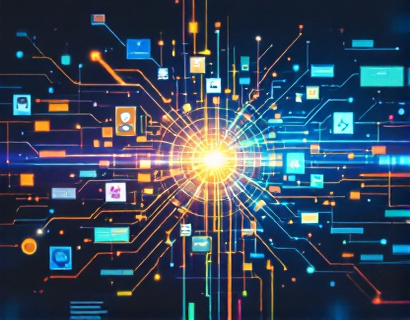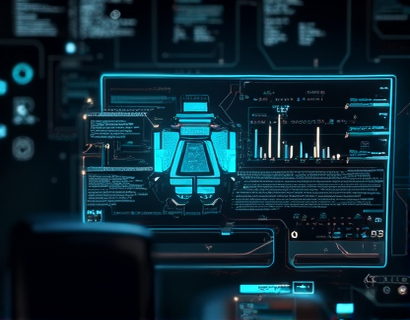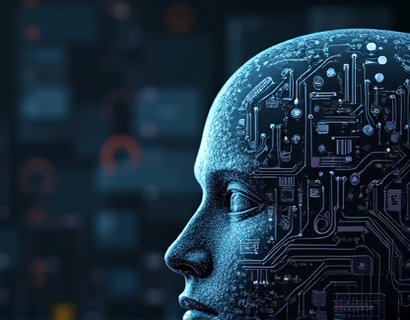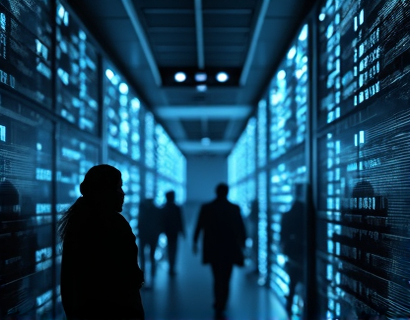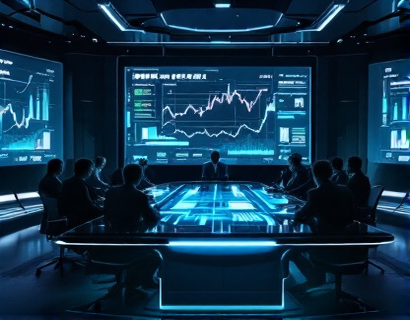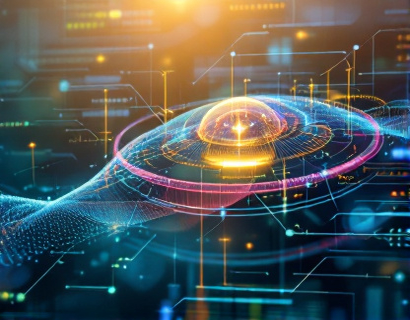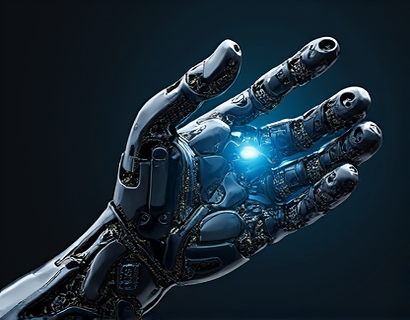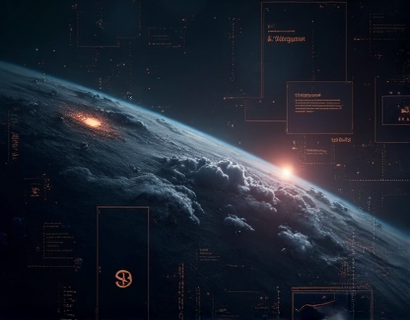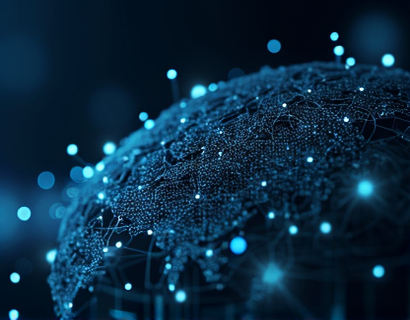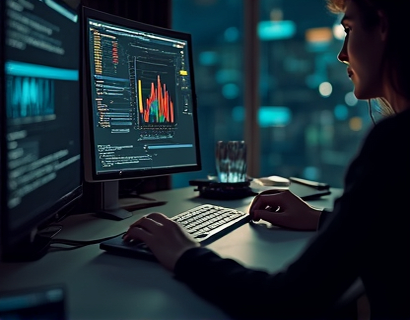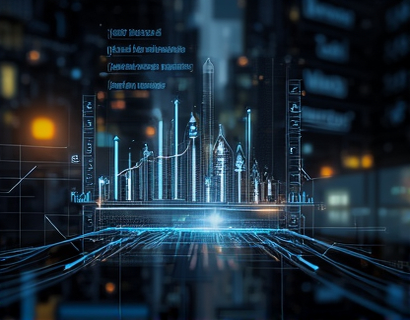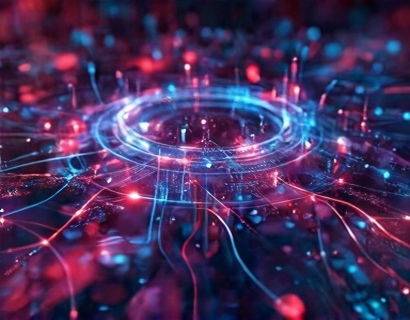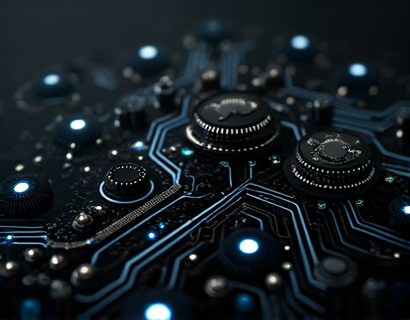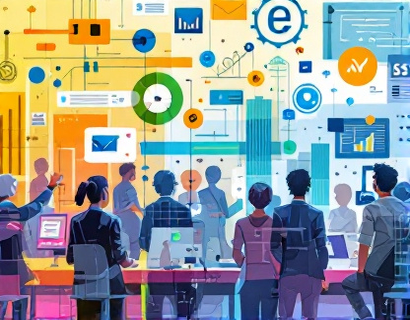Decentralized Innovation: Harnessing AI and Crypto for Next-Gen Productivity Enhancement
The intersection of cryptocurrency and artificial intelligence (AI) is giving rise to a new era of productivity enhancement, one that promises to transform how we approach tasks and manage resources in the digital age. This article explores the synergistic relationship between these two cutting-edge technologies, focusing on how they are being leveraged to create decentralized solutions that simplify and optimize various aspects of digital life. For tech enthusiasts and professionals alike, understanding this convergence is crucial for staying ahead in a rapidly evolving technological landscape.
The concept of decentralization has been a cornerstone of blockchain technology, the underlying infrastructure for cryptocurrencies. By distributing control across a network of nodes, decentralization eliminates the need for central authorities, reducing bottlenecks and enhancing security. When combined with AI, which excels in processing vast amounts of data and automating complex tasks, the potential for innovation becomes immense. This article delves into specific applications and scenarios where AI and cryptocurrency are merging to boost productivity and efficiency.
Decentralized Data Marketplaces
One of the most promising areas where AI and cryptocurrency intersect is in decentralized data marketplaces. These platforms allow individuals and organizations to monetize their data while maintaining control and privacy. AI algorithms play a crucial role in these marketplaces by matching data suppliers with buyers based on relevance and value. For instance, a decentralized data marketplace could use AI to analyze the quality and demand of data sets, ensuring that users receive high-value information while earners are fairly compensated in cryptocurrency.
This model not only incentivizes data sharing but also fosters a more democratic and transparent data economy. Traditional data markets are often centralized, leading to issues of data monopolies and privacy concerns. Decentralized platforms mitigate these risks by distributing data ownership and control, making them more appealing to users who are increasingly conscious of their digital footprint. AI-driven analytics further enhance the utility of these platforms by providing insights and predictions that can drive better decision-making.
AI-Powered Smart Contracts
Smart contracts, self-executing contracts with the terms directly written into code, are another area where AI is making significant impacts. Traditionally, smart contracts are limited to predefined conditions and actions, but the integration of AI can make them more dynamic and adaptive. AI can analyze real-time data and adjust contract parameters accordingly, ensuring that agreements remain relevant and fair. For example, in supply chain management, an AI-enhanced smart contract could automatically trigger payments based on delivery times and quality checks, reducing the need for intermediaries and speeding up transactions.
The use of AI in smart contracts also enhances security and reduces the risk of errors. Machine learning models can detect anomalies and potential vulnerabilities, providing an additional layer of protection. This fusion of AI and blockchain technology not only streamlines processes but also builds trust among parties involved, as the transparency and immutability of blockchain ensure that all actions are recorded and verifiable.
Decentralized Autonomous Organizations (DAOs)
Decentralized Autonomous Organizations (DAOs) represent a novel approach to governance and management, powered by AI and cryptocurrency. A DAO is a community-driven organization where decisions are made through decentralized voting mechanisms, often facilitated by smart contracts. AI can enhance DAOs by providing data-driven insights and predictive analytics to inform decision-making processes. For instance, AI can analyze market trends, financial performance, and member preferences to suggest optimal strategies and policies.
In a DAO, AI can also automate routine tasks such as financial reporting, compliance checks, and resource allocation, freeing up human members to focus on strategic initiatives. This combination of decentralization, automation, and intelligence creates a more efficient and responsive organizational structure. DAOs have the potential to revolutionize various sectors, from non-profits and startups to large corporations, by democratizing decision-making and enhancing accountability.
AI-Driven Cryptocurrency Wallets
Cryptocurrency wallets are essential tools for managing digital assets, and the integration of AI is making them smarter and more user-friendly. AI-powered wallets can offer advanced security features by analyzing user behavior and detecting suspicious activities in real-time. Machine learning algorithms can identify patterns that indicate potential threats, such as unauthorized access attempts or fraudulent transactions, and alert users accordingly.
Beyond security, AI can enhance the user experience by providing personalized recommendations and insights. For example, an AI wallet could suggest optimal times for transactions based on market conditions, or recommend diversification strategies to manage risk. These intelligent features not only protect users' assets but also help them make more informed and strategic decisions, enhancing overall productivity and financial management.
Decentralized Cloud Computing
Cloud computing has been a game-changer for productivity, but traditional cloud services are often centralized, raising concerns about data privacy and control. Decentralized cloud computing, powered by AI and blockchain, addresses these issues by distributing data and computing resources across a network of nodes. AI plays a vital role in optimizing resource allocation and ensuring efficient performance.
In a decentralized cloud environment, AI can dynamically allocate computing resources based on demand, ensuring that users have access to the necessary power without overpaying for idle capacity. This not only reduces costs but also minimizes environmental impact by optimizing energy usage. Additionally, AI can enhance data management by automatically organizing and tagging data, making it easier to retrieve and use. The combination of decentralization and intelligence creates a more robust, secure, and efficient cloud computing model.
Challenges and Considerations
While the potential benefits of AI and cryptocurrency in enhancing productivity are significant, there are also challenges and considerations to keep in mind. One of the primary concerns is scalability. As the number of users and transactions grows, ensuring that decentralized systems remain efficient and responsive is crucial. AI can help by optimizing network performance and resource allocation, but continuous innovation and improvement are necessary.
Another challenge is regulatory uncertainty. The intersection of cryptocurrency and AI operates in a relatively uncharted legal space, which can pose risks for developers and users. Staying informed about regulatory developments and ensuring compliance is essential for the sustainable growth of decentralized innovations. AI can assist in monitoring regulatory changes and providing compliance recommendations, but human oversight remains critical.
Privacy is also a key consideration. While decentralization and AI can enhance security, they also raise questions about data ownership and consent. It is essential to design systems that prioritize user privacy and provide transparent control over personal data. AI can help by implementing advanced encryption and anonymization techniques, but the ethical use of data must remain a top priority.
Future Outlook
The future of productivity enhancement through AI and cryptocurrency is bright, with numerous opportunities for innovation and growth. As technology continues to advance, we can expect to see more sophisticated applications that further blur the lines between these domains. For instance, the integration of AI with the Internet of Things (IoT) in a decentralized framework could lead to smarter homes and cities, where devices and systems work together seamlessly to optimize resource usage and enhance quality of life.
Moreover, the rise of Web 3.0, a decentralized internet powered by blockchain and AI, promises to redefine how we interact online. In this ecosystem, users will have greater control over their data and digital identities, and applications will be more intuitive and personalized. The potential for decentralized innovation is vast, and those who embrace these technologies will be well-positioned to lead the next wave of digital transformation.
In conclusion, the synergy between AI and cryptocurrency is paving the way for a more efficient, secure, and user-centric digital landscape. By leveraging decentralized innovations, we can overcome many of the limitations of traditional systems and unlock new possibilities for productivity and collaboration. Whether you are a tech enthusiast, a professional, or simply someone interested in the future of technology, understanding and exploring these developments is essential for staying relevant and competitive in the years to come.






